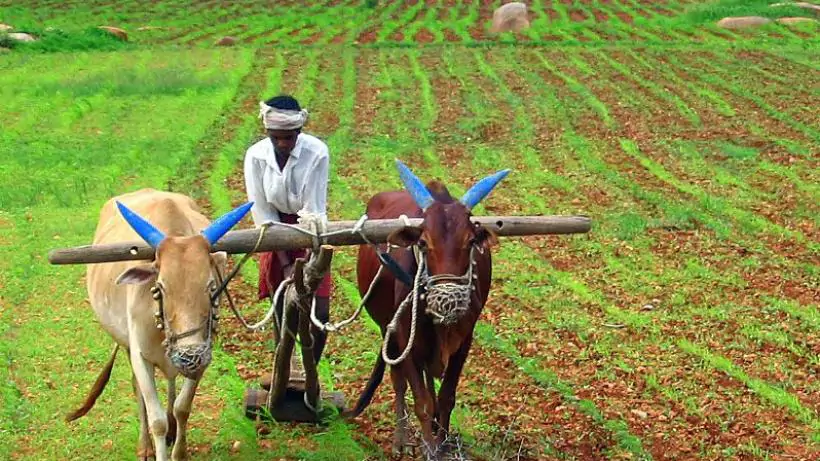India’s Progress in Sustainable Agriculture and Organic Farming
India has been making significant strides in promoting sustainable agriculture and organic farming as part of its broader strategy to reduce dependency on chemical fertilizers, improve soil health, and enhance farmer incomes. The government and various private and non-governmental organizations have been driving initiatives to transition toward natural and organic farming practices.
Current Status of Organic and Sustainable Agriculture in India
Organic Farming Area and Growth
- India is among the largest producers of organic products globally:
- Total certified organic farming area: 75 million hectares (as of 2023).
- India ranks 5th globally in terms of total organic agricultural area.
- Top organic product exports: Tea, coffee, rice, pulses, spices, and oilseeds.
Major States Practicing Organic Farming
The leading states in organic farming include:
- Madhya Pradesh – Largest area under organic farming.
- Maharashtra – Focus on horticulture and medicinal plants.
- Rajasthan – Dryland organic farming.
- Karnataka – Leading in natural farming methods.
- Uttarakhand – Organic cluster programs.
Key Government Initiatives
- Paramparagat Krishi Vikas Yojana (PKVY)
- Launched in 2015 to promote organic farming through cluster-based approaches.
- 2024–2025 Update:
- Focus on converting an additional 2 lakh hectares of farmland to organic.
- Financial assistance of ₹50,000 per hectare over three years to farmers.
- Promotes the use of natural compost, bio-fertilizers, and local inputs.
- Bharatiya Prakritik Krishi Paddhati (BPKP)
- Focus on promoting natural farming by avoiding synthetic inputs.
- 2024–2025 Update:
- Target to convert 10 lakh hectares to natural farming by 2025.
- Financial support of ₹31,000 per hectare for farmers switching to natural farming.
- Promotion of indigenous cow-based farming (using cow dung and urine as fertilizers).
- Rashtriya Krishi Vikas Yojana (RKVY)
- Strengthening infrastructure for organic and sustainable farming.
- 2024–2025 Focus:
- Development of organic input production units (bio-fertilizers, vermicompost).
- Providing subsidies for setting up organic markets and storage infrastructure.
- National Project on Organic Farming (NPOF)
- Provides financial and technical support for organic certification.
- 2024–2025 Update:
- Increased funding for Organic Certification Boards.
- Simplified certification process for small farmers and FPOs (Farmer Producer Organizations).
- Zero Budget Natural Farming (ZBNF)
- Based on Subhash Palekar’s method of farming using no synthetic inputs.
- 2024–2025 Expansion:
- Andhra Pradesh leading the ZBNF movement with over 10 lakh farmers
- Target to convert over 2 million hectares under ZBNF by 2025.
- Government is encouraging states to adopt ZBNF under PKVY.
Technological and Policy Innovations
- Soil Health Cards
- Distributed to farmers for monitoring soil health and nutrient requirements.
- 2024 Update: Over 230 million Soil Health Cards distributed so far.
- Encourages farmers to reduce excessive chemical fertilizer use.
- Bio-Fertilizers and Green Manure
- Increased production of bio-fertilizers like Rhizobium, Azotobacter, and Azospirillum.
- Financial incentives for green manure cultivation.
- Crop Diversification Programs
- Encouraging farmers to shift from water-intensive crops like rice and
sugarcane to:
- Pulses
- Millets
- Oilseeds
- Millets (like ragi and jowar) promoted under International Year of Millets 2023.
- 2024–2025 Focus: Incentives for millet-based crop rotation.
- Encouraging farmers to shift from water-intensive crops like rice and
sugarcane to:
Challenges and Risks
High Cost of Transition
- Initial transition from chemical-based to organic farming requires high investment.
- Lack of sufficient financial support during the transition period.
Certification Bottlenecks
- Lengthy and costly certification process under the National Program for Organic Production (NPOP).
- Need for decentralized certification mechanisms.
Yield Gap Concerns
- Organic and natural farming initially result in lower yields (~10–20% lower).
- Need for better training and support to improve organic yields.
Positive Outcomes and Success Stories
Sikkim – India's First Fully Organic State
- Declared fully organic in 2016.
- Organic farming boosted farmer incomes and exports.
- Reduction in soil and water contamination from chemicals.
Andhra Pradesh – ZBNF Success
- Over 10 lakh farmers have adopted ZBNF.
- Reduction in input costs by over 60%.
- Increased soil fertility and moisture retention.
Karnataka – Organic Coffee and Spice Farming
- Karnataka leads in organic coffee and spice exports.
- Growing global demand for Indian organic products.













